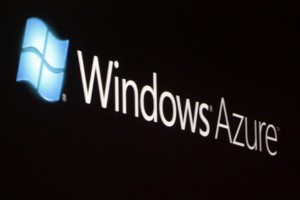 Microsoft unveiled new capabilities for Azure that move the cloud offering from a platform as a service into the competitive landscape of infrastructure as a service, while embracing open-source operating systems.
Microsoft unveiled new capabilities for Azure that move the cloud offering from a platform as a service into the competitive landscape of infrastructure as a service, while embracing open-source operating systems.
“Enabling infrastructure as a service gives customers the ability to host and deploy durable virtual machines running Windows or Linux,” Scott Guthrie, CVP of Windows Azure’s application platform, said during an unveiling broadcast on the Web Thursday.
“You may be surprised to hear about Linux, but our support of Linux is one example of how we are embracing openness in a fundamental new way,” he added.
The IaaS service is available now and allows users to configure virtual machines in one of five sizes, supporting up to 20 virtual machines at once running either Windows or Linux operating systems. They range in price from $9 for an extra-small VM, which includes 1GHz of CPUI and 768MB of RAM, to a medium offering for $115 for a single VM, to an extra-large VM, which includes 8 x 1.6GHz of CPU with 14GB of RAM for $460 per month. Extra costs include local or geo-redundancy and bandwidth for uploading into the cloud.
The IaaS offering comes with a 99.95% availability service level agreement and the service allows customers to save virtual machine images and relaunch them on other VMs, giving them persistent and durable qualities. Guthrie also said the software development kits (SDKs) associated with the Windows, Mac, Linux installations will all be available on GitHub.
The move launches Microsoft into the busy IaaS field, where market leader Amazon Web Services competes with various other providers, including Rackspace, Terremark, GoGrid and others.
Michael Crandell, CEO of RightScale, a company that helps users migrate to cloud environments and works with a handful of cloud providers, including Amazon Web Services and Rackspace, said the company would support Azure’s IaaS offering.
“When we learned a while ago that Azure would be coming out with infrastructure as a service, we got really excited,” he said during Microsoft’s Azure debut, which the company webcast.
The integrations between Azure’s PaaS and IaaS environments, he said, are an “industry first.” He said running Linux operating systems on the service is a “clear commitment to open standards.”
James Staten, a research VP at Forrester, agreed. “Only Microsoft, as of today, offers the broadest IaaS and PaaS from a single vendor cloud platform,” he wrote in a blog post. He said Azure was an “ahead-of-its-time” PaaS offering when it debuted and is now a general-purpose destination for developers to build a range of applications.
“Microsoft has finally joined the mainstream by adding a full Infrastructure as a Service (IaaS) offering that lets you deploy just about anything,” he added.
Microsoft’s Azure news caps off a busy week in the cloud, which saw major announcements from HP, Oracle and Red Hat related to the cloud platforms of other companies as well. Oracle, for its part, released the news of its cloud-based delivery of applications, while HP rolled out the next generation of its converged cloud infrastructure platform, which is based on OpenStack technology.
Meanwhile, Red Hat — a company Microsoft officials did not name during the Azure webcast when discussing openness — released a software for managing hybrid cloud deployments, or cloud environments that include both public and private cloud resources.





